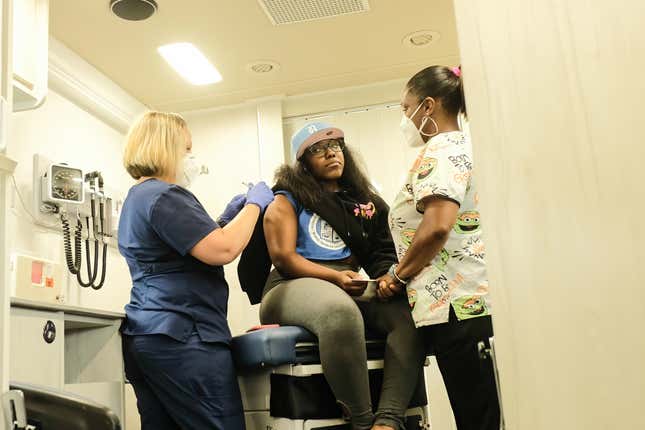
After the COVID-19 pandemic devastated Black communities throughout the United States, there’s finally a touch of good news. The Centers for Disease Control recently released new data showing that life expectancy for Black Americans, and in fact all Americans, crept up last year.
On average, Black Americans gained an additional 1.5 years of life on average. That takes the average life expectancy of a Black American in the United States from roughly 71 years in 2021 to nearly 73 years in 2021.
It’s worth noting that across the board, Americans are living shorter lives than they were pre-pandemic. And Black Americans are living shorter lives than our white, Hispanic, and Asian counterparts. (Native Americans/ Alaskan Natives are the only group with a shorter life expectancy in the United States).
The pandemic played a massive role in increasing the racial divide in life expectancy, but obviously, this is a problem that far predates COVID.
Experts have long argued that racial discrimination in the form of both interpersonal and systemic racism drives the differences we see in life expectancy between Black and white Americans. Issues like access to adequate healthcare facilities, insurance rates, healthcare discrimination, and income have all been linked to lower life expectancy among Black Americans. The fact that Black Americans are disproportionately at risk of being killed by police or being the victims of gun violence also plays a role.
So, while the rise in life expectancy is great news, it’s clear that there’s still an alarming amount of work left to be done.